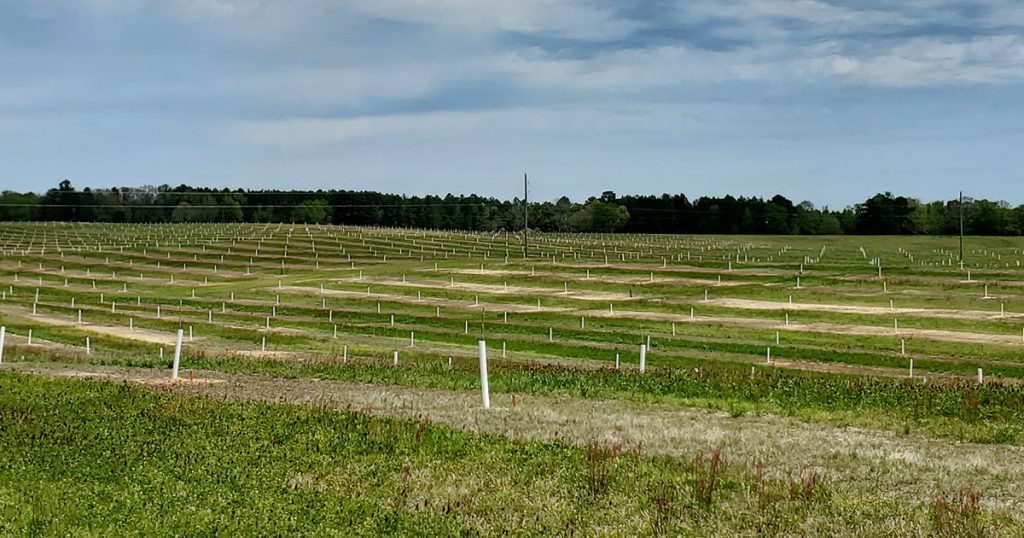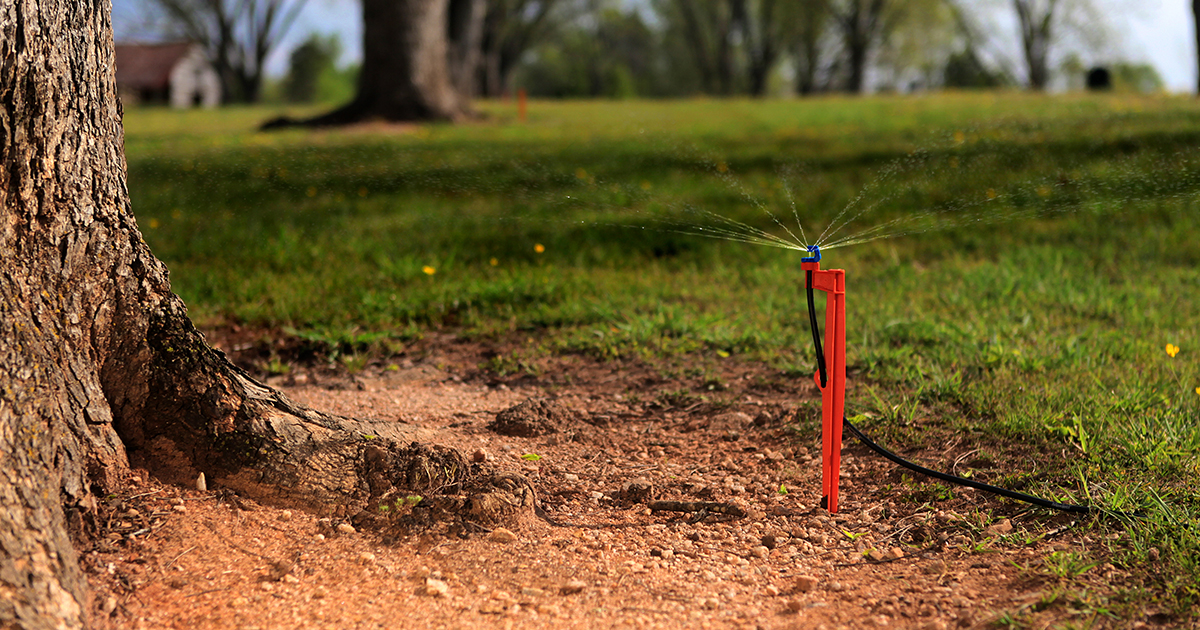Three of the most important factors in pecan production are: Water, Water and Water!
Pecan trees have high water requirements, as much as 350 gallons per tree per day for mature trees. In addition, they have been shown to take most of the water they require from the upper 32 inches of the soil profile for normal seasonal growth. The deeper the trees have to reach for available water the more energy they use to obtain it. If ground water levels are very low the pecan trees will go into “survival mode” and divert their energy from developing leaves and nuts to simply surviving the drought stress.

Adequate soil moisture is important at the beginning of the season to stimulate strong, vigorous growth, from bloom through shell hardening for nut size, and during the nut filling stage for better overall nut quality. At the end of the season it is important to prevent shuck split, early nut drop, and low energy reserves.
One of our customers once said “I’ve never made money trying to save money”. In other words, you have to spend money on the things that can make you money. When it comes to pecan production, one of the best investments you can make is the installation of an irrigation system. It is the best way to ensure that adequate soil moisture is available when the trees need it.
There are several types of systems to choose from including solid-set sprinklers, micro jets, punch in emitters, and drip tubing. No matter which type of system you choose, it is important that an irrigation schedule be developed based on the type of system and soil type that will meet the water needs of the trees.
Micro-jets, emitters, and drip tubing are the most common types of irrigation systems currently being installed for pecan orchards. Some of the advantages these system types have over more traditional solid-set sprinklers are:
- Minimal evaporation/water loss since water would be discharged at or below ground level.
- Lower pressure requirements.
- Ability to maintain more constant soil moisture levels.
- Irrigation can be applied during mechanical operations.
- Fertilizer and other chemicals can be applied through the system.
- Systems are readily adapted to automatic controls.
- More efficient and uniform application of water.
A properly designed irrigation system coupled with a proper watering schedule can prevent drought stress, boost crop yields, and improve quality.
Contact us your local TriEst Ag Group location about designing your irrigation system today. https://triestag.com/contact-us/
References:
Wells, M.L., Harrison, K.A. 2006. Cultural Management of Commercial Pecan Orchards (B 1304) UGA Extension
Harrison, K.A. 2009. Drip Irrigation in Pecans (B936) UGA Extension
